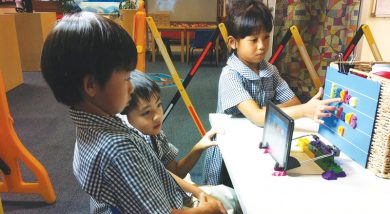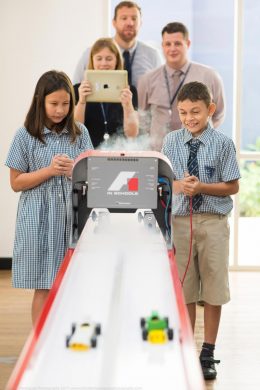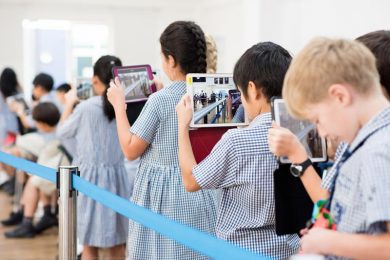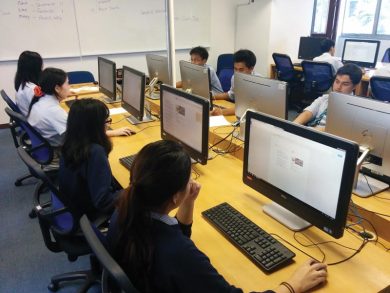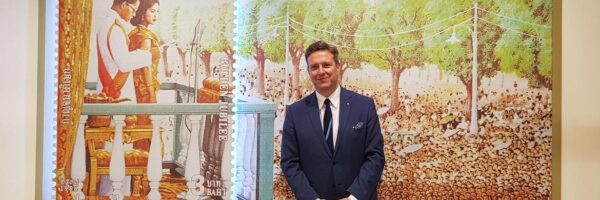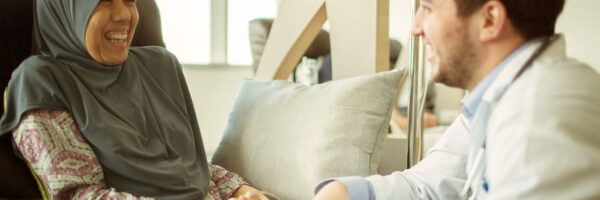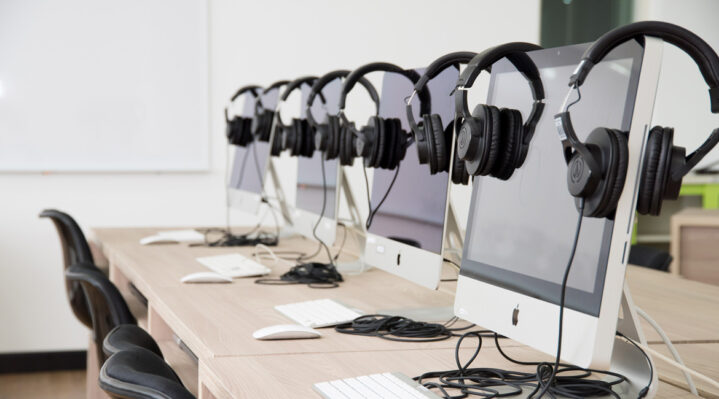
Review The Digital Citizenship Programme At Harrow School
Digital citizenship in the Lower School
What word or phrase describes the teaching at Harrow International School Bangkok?
Leadership for a better world, and we live and breathe this through our curriculum and co-curricular activities.
How do you prepare students for the digital world?
Technology is seen as a useful and essential addition to the classroom with outstanding teachers as the driver to high quality learning. In the Lower School, our teachers are skilled in allowing our digital learners to enquire and discover for themselves. This is done by providing just enough instruction for students to get started and then knowing when and how to ask the right questions.
How does the design of your school encourage digital learning?
Wherever possible, we ensure that our learning spaces have no set teaching space or learning format to encourage both independence and collaboration. In addition, we have advanced ICT facilities comprising tablets, computers, ICT suites, film and music studios, toys, sensors, technology rooms and VR.
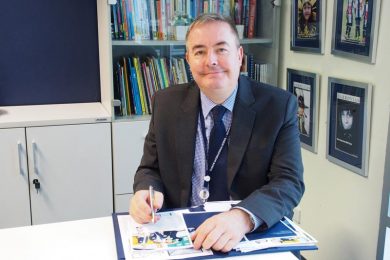
Are the teachers at Harrow Bangkok equipped for teaching in the digital world?
Our students have high expectations of what technology can do, and so recruitment and training has focused on ensuring that all our teachers are equally up to date. Technology is used widely across all curriculum areas to enhance learning, and computational thinking is taught hand in hand with creativity to ensure that our students can fully express themselves in a future world.
Our educators also understand that technology is just a tool and must be used carefully. In the wrong hands, technology can limit creativity and disconnect students from the purpose of learning – our mantra is always that ‘learning must lead technology’.
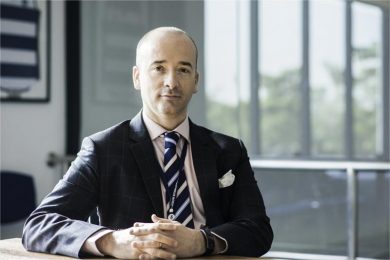
Do teachers use new technologies such as artificial intelligence (AI), augmented reality (AR), virtual reality (VR) or gamification in their lessons?
This year, AR technology provided students opportunities to explore internal organs in Biology with the Virtuali-Tee app, whilst software such as Aurasma gives students the chance to bring inanimate objects to life.
How does your school regulate the students’ use of digital devices?
In the Lower School, our teachers are skilled in allowing our digital learners to enquire and discover for themselves. From the age of 9 we utilise a ‘bring your own device’ programme which is managed carefully with age-appropriate ‘e-zones’ and a clear policy understood by all our stakeholders.
What advice would you give to parents raising children in the digital age?
Parents must be good role models in their digital use and for Primary aged students, parents always need to be aware of what their children are doing with their time either through gentle monitoring or talking with their child. Just like other activities, limits must be set and adhered to. And finally – never forget the value of face-to-face communication.
Digital citizenship in the Upper School
What word or phrase describes the teaching at Harrow International School Bangkok?
Leadership
How do you prepare students for the digital world?
We have a clear statement on developing digital citizenship. We have an emphasis on developing young people who are digitally literate but also responsible digital citizens.
How does the design of your school encourage digital learning?
In addition to several PC and Mac suites used for Computer Science, Music and Art, we have a ‘bring your own device’ policy in the Upper school so all students are able to use their own device in lessons with a teacher’s permission. Outside of lessons they can use their devices in dedicated ‘e-zones’.
Are the teachers at Harrow Bangkok equipped for teaching in the digital world?
Absolutely. All of our teachers are highly competent in the use of technology with teachers in some departments who are ‘super-users’. The use of technology for assessment and feedback is a particular strength.
Do teachers use new technologies such as artificial intelligence (AI), augmented reality (AR), virtual reality (VR) or gamification in their lessons?
We have begun to experiment with using AR and VR, but we don’t feel the technology is sophisticated enough yet. It tends to give students a headache when using the headsets! We do use some AI based software products in languages which give students adaptive feedback.
How does your school regulate the students’ use of digital devices?
Using digital devices will be useful to children. But there is a penalty as well. It is all about finding a balance. They can’t be on devices all the time and need to make sure they are developing other essential learning skills like communication and numeracy.
How does your school develop learner’s social and emotional learning (SEL) or Digital Intelligence (DQ)?
Everything we do is guided by ‘The Harrow Learning Journey’ which clearly articulates that we develop transferable learner skills such as communication and problem-solving. This is achieved in many ways both in the classroom and through special challenge days and expeditions. DQ is addressed through our tutorial programme in line with our statement on digital citizenship.
What advice would you give to parents raising children in the digital age?
You need to be aware of the information that students can access on their devices. Learn how to check what content they access and ask your school for help if you are unsure.
For more information please visit:
www.harrowschool.ac.th


